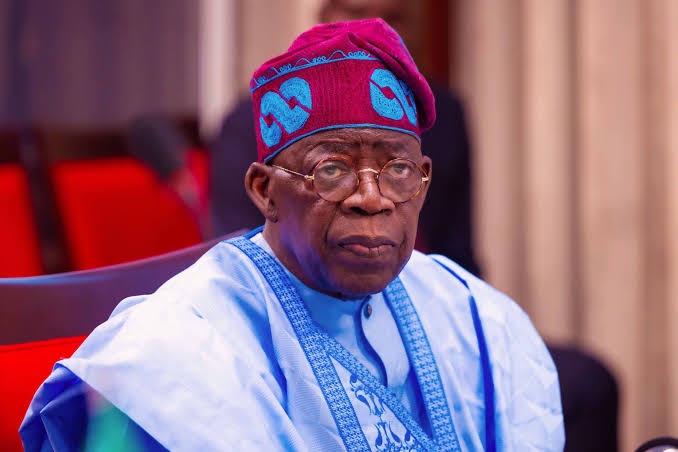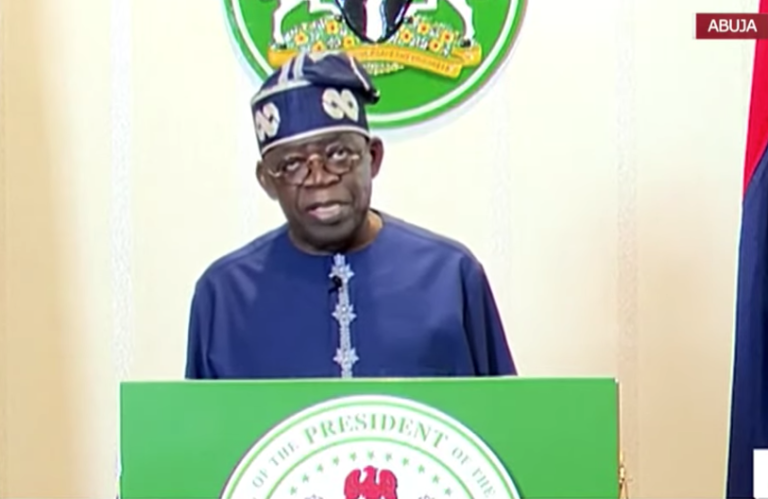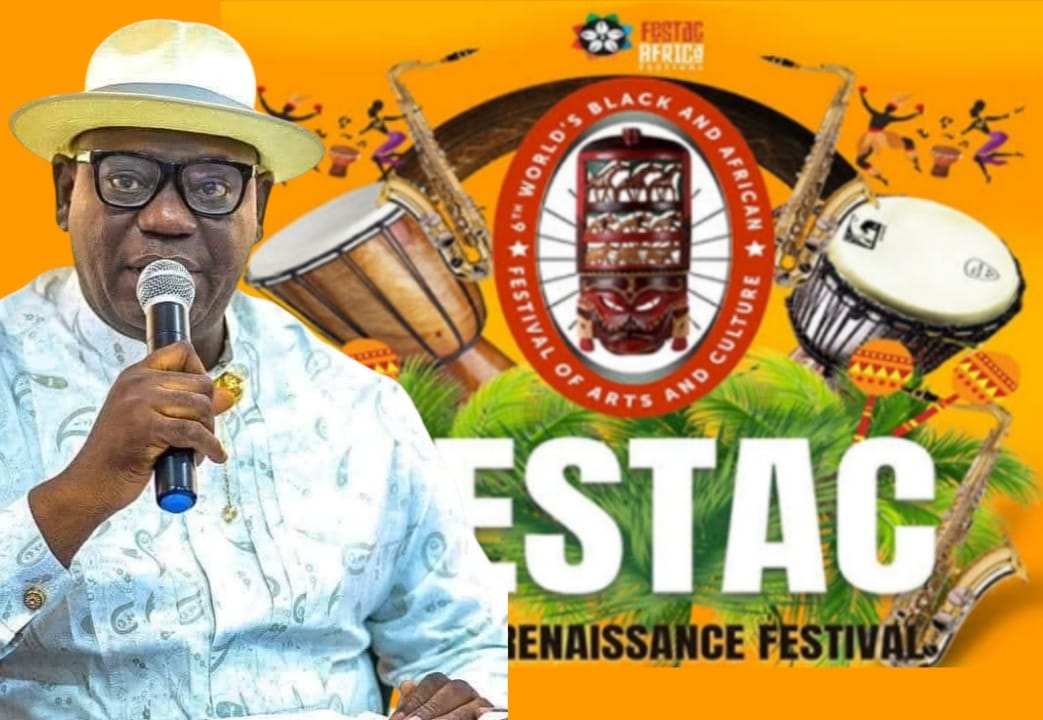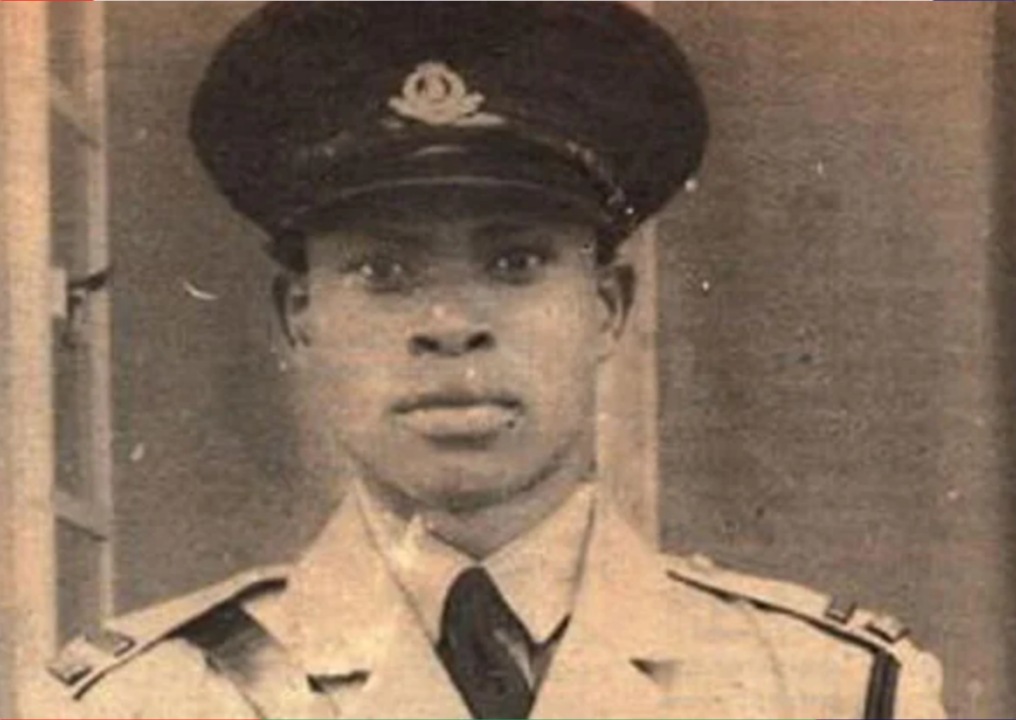OWEIZIDE: Half a Century in the Struggle for Izon Identity; the Life Journey of High Chief Government Oweizide Ekpemupolo (Tompolo) By Ebikisei Stanley Udisi PhD
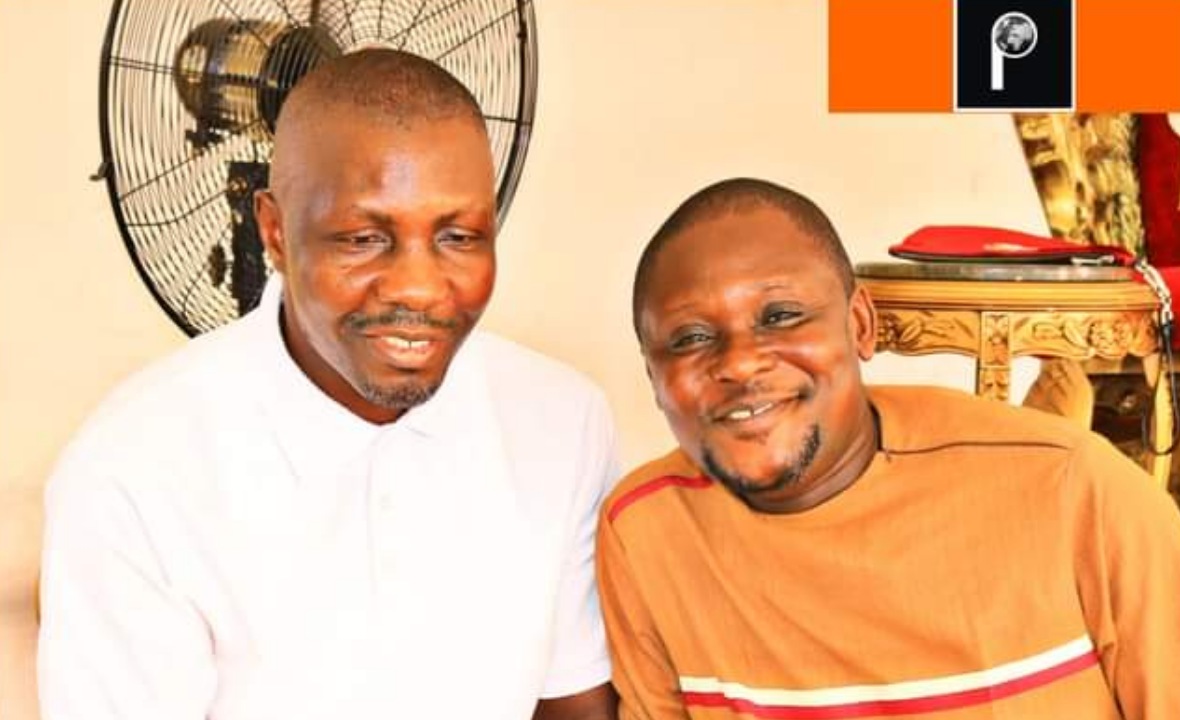
The above titled speech was delivered as a lecture at a program organised by the Gbaramatu Youth Development Association, also known as the Gbaramatu Youth Council (GYC) at Oporoza town, traditional Headquarters of Gbaramatu Kingdom in the Warri South-West local government area of Delta State, Nigeria on Sunday, 4th April, 2021 by Ebikisei Stanley Udisi, PhD, Department of Philosophy, Niger Delta University, Wilberforce Island, Bayelsa State, Nigeria, as part of the activities lined up in celebrating the Niger Delta Hero's Golden Jubilee. Excerpts:
➡️ INTRODUCTION
The word Identity is etymologically derived from the Latin words, Idem or Identilas, meaning same or identical. It translates to what individuates a thing, a person, or a group. It is an important component in group participation in society. Identity guarantees membership in groups or it gives recognition of one in a group and accords benefits and responsibilities in such group formations. Be it benefits or responsibilities, the most important factor is the recognition accorded one as belonging to the group, i.e. the identity shared. Identity therefore is a very important factor in social group formations as it gives rights and privileges. Beyond groups, identity is what makes you who you are. It is what defines one’s personality and individuates one person or group from another. It gives one an identity and makes one self conscious and assertive, particularly in social settings.
In Nigeria, the complexities in her social settings and her pedestrial stride to greatness stems from the multiplicity in the ethnic groups therein and a mismanagement of the diversity in ethnicity, ensuing in group identities and solidarity over and above other considerations, because of the benefits derivable from these identities and solidarities in resource acquisition and allocation. In the ensuing interplay, the larger ethnic groups have so dominated the socio-political space to the detriment of the minority groups, with the minority groups also struggling to assert their place and self-identity within this space, resulting in a cycle of struggle that has yielded crisis and impunity in the chequered history of Nigeria’s social formation.
The Izons, designated as one of the minority ethnic groups in Nigeria, the most prominent in the Niger Delta, in whose domain the resources from which the entire nation of Nigeria depends on for her survival has been subjected to a marginalized stay, their continuous existence threatened and her identity bastardised in the power play and social intercourse in Nigeria. The Izon experience is therefore a struggle for survival in the midst of strangulating social conditions and her consistent attempt to assert an identity in the suppressing and suffocating majority ethnic dominated social structure, marooning under a pseudo federal government and the multinational oil exploration conglomerates, leeching on the natural resources in the domain of the Izons.
The Henry Willink Commission report of 1958 amongst others were therefore prepared to sustain the identity of the Izons and other minorities in Nigeria, yet the oppression and blatant stealing of her resources and attempt to push them to extinction by the so-called majority dominated government at the centre and her cronies. This has led to agitations in several formations, often times combative, in the history of the Izon existential experience. In fact, the Izon world is synonymous with agitations, because, “the man dies in all who keeps silent in the face of tyranny”, in Wole Soyinka’s summation. The Izon man is not known to cower in the midst of oppression, so he stands to fight all forms of oppression. The famous ‘Twelve Day Revolution’ by the Niger Delta People’s Volunteer Force led by the Izon hero, Isaac Jasper (Adaka) Boro on February, 23, 1966 which called for a secession of the Izons from Nigerian, to form an Izon republic is an epic example of such agitations.
The Federated Niger Delta of Ijaw Communities (FNDIC), The CHIKOKO Movement, The Movement of the Survival of the Ijaw Ethnic Nationality in the Niger Delta (MOSIEND), MEINBUTU, the Febagha Ogbo of Okerenkoko, the Ijaw Youth Council (IYC), the Movement for the Emancipation of the Niger Delta, MEND are some of such groups established by the active Izon youth population to agitate for equity and a restoration of the Izon identity. The man, High Chief Government Oweizide Ekpemupolo, the reason for this lecture, features prominently in the formation and execution in the mission and vision of these radical movements and more, highlighted above.
The aim of the presentation is thus to expound his life, contribution to the identity restoration of the Izon personality and the lessons to be learnt from his experience, so as to chart a veritable course for the next generation in the Izon nation project. This shall be demonstrated from his symbolic name, Oweizide. Our next treatise is therefore to link Oweizide to his contributions to the development of the Izon nation.
➡️ OWEIZIDE
Oweizide literary mean ‘a male child is born’. It is an Izon name celebrating the birth of an expected male child. It is worthy of note that the Izons, like their other African brothers link names to their social experience, belief system, their hope of the future and generally expressing their world-view.
Names in Izon are therefore symbolic. Oweizide is thus a symbolic name. It seems to be an expression of joy on the birth of a male child, probably the first in the lineage or long after the birth of several female siblings. The question is, why the special celebration of a male child?
In the Izon worldview, a male child connotes continuity and a regeneration of the community. Although the female child is equally regarded as an important gift to the family, it is expected that the female will come of age, marry into another family or community and start the process of regeneration there, while the male remains in his father’s home, bring a woman in marriage and continue the regeneration therein. The important fact to note is that the role of the male and female in the Izon world is not that of competition, mutual suspicion and rivalry as contemporary feminist agitators would have the world believe, but they exists to play mutually beneficial and complementary roles to themselves and the community at large, in harmony with the Izon ontology. Afterwards, it is a relationship captured in the African Ubuntu aptly capture by the philosopher, John Mbiti, “I am because we are and, since we are, therefore I am”. (The gender debate is a topic for discourse another day).
Oweizide therefore prominently fits into the Izon experience. His task as a male child, so celebrated, was to dress in the shoes of his forbearers and continue the struggle to free his people from the oppressive system of resource exploitation and environmental degradation and cause a regeneration of his people from poverty, shame and a shredded identity.
Does he have to perform this role as an owei? Can he choose to abdicate this enormous responsibility? In the Izon tradition and worldview, a thing or person is beautiful, i.e. fits into social values if it or the individual performs socially ascribed roles. Beauty is therefore tied to the value of duty. It is based on this expectation that his birth as a male child was celebrated, Oweizide. Having this understanding, High Chief Government Oweizide Ekpemupolo, aka TOMPOLO set out early in life to fulfill his place in destiny amongst his people. Wikipedia’s account of his online biography indicates that he was born in 1971 and his active years began in 1993, when he became prominent as an agitator and liberator of his people. It therefore implies that he started making impact on the lives of his people in his early twenties.
As a man who stands for justice, he witnessed the suffering of the Izon people while growing up in his domain. He observed keenly the sidelining of his people from the gains accruing from the production of resources in his community by complete strangers, who have claimed ownership of these resources through funny legalities made surreptitiously, and sometimes, brazenly. He has therefore spent a greater part of his existence struggling to free the Izon people from this economic bondage and restore the stolen identity for them.
Born on the 12th of April, in 1971 into the royal family of Chief Thomas Osei Ekpemupolo of Okerenkoko in Gbaramatu kingdom in the current Warri South Local Government Area and Mrs Sologha Ekpemupolo of Ogulagha kingdom in Burutu Local Government Area in Delta State. As a young boy, he carefully noticed the pains of his suffering folks even within their ancestral communities, and so he left the comfort of his promising educational carrier and joined forces with other like minds within his Izon nation and formed resistant youth groups to agitate the emancipation of his people. Wikipedia commented that Tompolo has been a commander of various armed groups in the Niger Delta, agitating against the insensitivity of the federal government of Nigeria and the international oil companies exploiting resources and degrading the eco-system of the area.
In all these agitations, which are well documented, Tompolo has made personal sacrifices. He has constantly sacrificed his comfort and that of his immediate family and friends. He left his promising educational career very early in his life to free his people from oppression and complete annihilation by strangers. He has lost close friends, allies and family members to the struggle. He has been called derogatory names and false appellations, yet he stood steadfast in the defense of his people. One can recall that in January 2016 the federal government of Nigeria under Muhamadu Buhari issued a warrant of arrest on him on charges of theft and money laundering. The courts in Nigeria later dismissed these accusations after several years of unlawful incarceration by the government and its agencies.
It is however worthy of note that his investments has still not been released to him even after the courts have found him innocent of the charges. I have earlier argued that impunity is the major cause of problems in Nigeria. Allow the laws of the land to operate in the land.
➡️ SOME NOTABLE ACHIEVEMENTS OF HIS STRUGGLE
Let us consider some benefits of this bold encounter by him on his people in our recent history.
1] One major achievement of the agitations and struggle of Oweizide is the recognition of the identity of the Izons within the Nigeria state and beyond. This recognition has yielded the allocation of political recognition and positions and the concomitant benefit of economic resources. An Izon man has been elected to occupy the most exalted position in the countries political space, i.e. the presidency. This feat was hitherto a tall dream in the countries political history.
2] The agitations by Oweizide and his contemporaries has caused the location some key social institutions within the Izon enclave, such as the The Nigerian Maritime University, Okerenkoko, Delta State; the Federal University, Otuoke, Bayelsa State etc.
3] One key landmark of the struggle is the amnesty program Tompolo championed and the immediate benefit it has yielded on the active population of the Izon nation. Although its implementation is a far cry from the dreams and design of its initiators and founders, prominently our dear Oweizide. With the amnesty, at least a palpable peace reigns within the geography of the Izon nation. Some the benefitting youth have acquired skills in different vocations. Others have had formal education in different academic disciplines within Nigeria and abroad.
4] As an individual, Oweizide’s peace initiatives have supported the institution of government both at the federal, state and local levels. Without peace in the Niger Delta, prominently occupied by the Izon people, the resources needed to run the economy of state, through proceeds from the resources explored and exploited from her environment would not have been possible. He serves as a symbol of unity within the Izon nature and model for the young generation. His humility, hard work, determination and philanthropy are legendary.
5] He has many foundations catering for the needs of his people, prominent among these are his educational scholarship schemes through which many indigent persons have gained formal education from the basic through the post graduate levels, within Nigeria and abroad. Many others have acquired practical, vocational skills and are doing well in their endeavours through his sponsorship. His private domain has been a Mecca of sort, in peace building and communal reconciliations within the Izon nation and beyond. He has mentored young Izons in political participation, business enterprises, mostly on security, the oil and maritime sectors.
6] He believes in the Izon god, Egbesu, which is one major symbol of unity, identity and protection in the Izon nation, yet this fact is ignored, owing to the lack of understanding of the nature and value of this being. This belief in Egbesu regulates his personal values, which are demonstrated in his social actions; his interactions with people and the environment. This is the character, which endears him to his admirers, yet they have refused to emulate the source of this enviable character. Egbesu epitomizes justice, protection of the human person and the eco-system. In fact, it is a moral code in itself, worth studying by philosophers, sociologists, religionists, historians and other social academics. Egbesu is key in the Izon ontology, and in it, the true identity of the Izon person, the lack of which is creating social degeneration and the inroad for other more assertive groups to dominate the Izons, which leads ultimately to the costly agitations would be curbed.
➡️ LESSONS FOR THE NEXT GENERATION OF IZONS
What lessons can the youths learn from the life and actions of the legend, Oweizide? The youth should emulate the hallmarks of his character, which can be summed up in his humility, self-discipline, leadership, selflessness/self sacrifice, boldness, forthrightness, etc.
➡️ WHO CAN FIT INTO HIS LARGE SHOES?
At fifty, Oweizide is gradually wearing out in physical strength. Age is gradually setting in, which tends to weaken his physical capacity to perform extraordinarily as he had done in his youthful age.
The Izon nation and indeed the world is celebrating him for performing the role expected of him by his society; fulfilling the expectation which caused the celebrating of his birth. The youths of Izon nation should emulate the legacies of Oweizide and prepare to step into his large shoes. Who is next to lead the Izon nation to the next level? This is the question begging for answers from the youths of the Izon nation.
The Gbaramatu Youth Development Association (GYC) has demonstrated leadership in charting the course in presenting this noble opportunity for us to think and prepare the youth on the responsibility of leadership on this special occasion of the celebration of our living legend, High Chief Government Oweizide Ekpemupolo. In appreciating his humble but impactful contributions today, the youths are poised to take on the role of leadership Oweizide is bequitting to them.
At 50, nature is taking its turn on him. He is gradually retiring. It is my submission that while our legend have so many parts to emulate in his life of service to his people; it is really very difficult to fit squarely into his large shoes. The youths should however look into themselves and see what their aptitudes, their natural abilities can give. If every one makes a contribution of what is natural to them positively, our legend, Oweizide will retire in peace when the time is ripe, fulfilled that he has raised and mentored the next generation to build on his legacies. Then, the Izon nation will be poised to attain the lofty heights of her forbearers.
It is our prayer that the Lord should continue to prosper him, give him long life, good health and sound mind.
Happy Birthday, our living legend, High Chief Government Oweizide Ekpemupolo, aka Tompolo.
➖ ➖ ➖ ➖ ➖ ➖ ➖ ➖ ➖
WORKS CITED
◼️ Boro, Isaac Adaka. The Twelve Day Revolution, Tony Tebekaemi (editor). Benin City: Idodo Umeh, 1982.
◼️ Mbiti, John S. African Religions and Philosophy. London: Heinemann, 1976.
◼️ Quarcoopome, T.N.O. West African Traditional Religion. Ibadan: AUP, 1987.
◼️ Tompolo, Wikipedia, the free encyclopaedia. https://en.m.wikipedia.org
◼️ Soyinka, Wole. The Man Died. England: Penguin Books, 1977.
◼️ Williamson, K. and Roger Blench. Dictionary of Kolokuma Izon. pdf
◼️ Udisi, E.S. and Mark D. Ekperi ‘Impunity and the Eluding Peace in Nigeria: A philosopher’s Panacea’ APPON Bianual Conference, Makurdi, 2019.
◼️ Udisi, E.S. ‘Religion And Morality: A Comparison Between Contemporary Western And Traditional Izon World Experiences’, Wilberforce Island Review: Journal of the Faculty of Arts, Niger Delta University.
◼️ Udisi, E.S. ‘The Concept of Truth in the Izon world view’, Keli Keli: Journal of Philosophy and Religion. Vol. 3. No.1, November 2016. Department of Philosophy and Religious Studies, Niger Delta University.
You can reach Ebikisei Stanley Udisi, PhD, via email: [email protected] or call +234 8037110643.
#penglobalspeech #Tompolo
